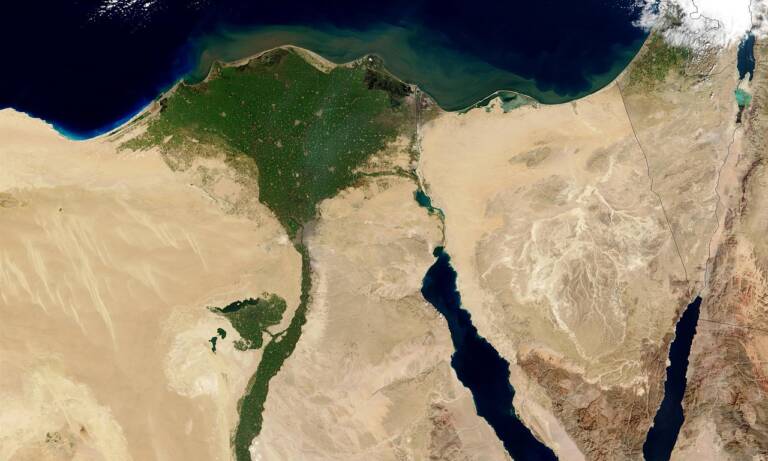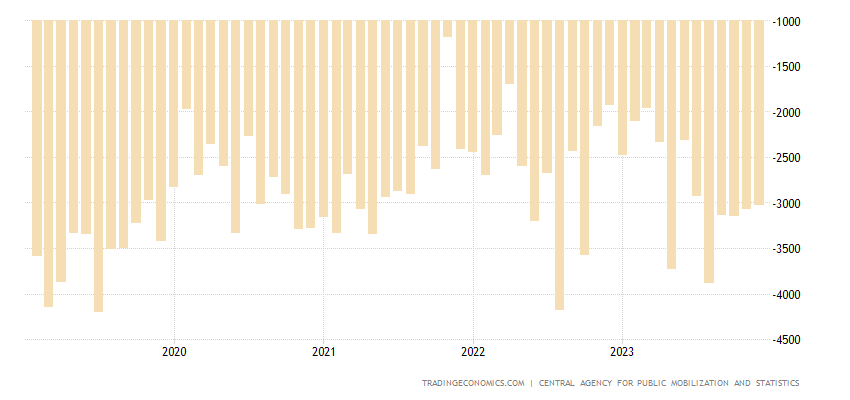Russia-Egypt, nuclear relations are growing

In February this year, Egypt and Russia celebrated 80 years of bilateral diplomatic relations. The biggest indication that these decades-old ties are expanding to new horizons was the inauguration of the final phase of Egypt's El Dabaa nuclear power plant a month earlier.
On January 23, Egyptian President Abdel Fattah el-Sisi and his Russian counterpart Vladimir Putin practically laid the foundations of the fourth power unit of the nuclear power plant, developed by the Russian State Atomic Energy Corporation (ROSATOM).
The long-awaited nuclear power plant, located along Egypt's Mediterranean coast, cost $28.75 billion, of which 85% was financed by Russia and will have to be repaid by Egypt with a 22-year loan with a 3% annual interest rate.
Interests prevail over pressures
Experts believe that the nuclear project has further strengthened Russia's presence in the region, balancing US influence in the process.
On the first day of 2024, Egypt's membership of the BRICS economic bloc officially came into force as Russia took leadership of the group, which now includes 10 countries.
By joining the BRICS, Egypt is believed to be seeking to ease the dominance of the US dollar in the North African country's economy amid an unforgiving financial crisis triggered by internal and external factors, such as currency devaluation and Israel's war against the neighboring Gaza Strip.
In recent months, attempts have been made to implement what economists call "de-dollarization" to reduce dependence on the dollar in trade, even if this will not magically multiply exports and Egypt's devastating trade balance will not magically return to surplus
Early last year, the Russian central bank added the Egyptian pound to the Russian exchange rate. However, the green dollar continues to dominate, but its value relative to the Egyptian pound fluctuates in the parallel and informal market. Conversely, Russia and Egypt, at least in the short term, can establish bilateral exchange rates on the basis of political agreements, limiting the devaluation of the Pound Egyptian and finding a market for Russian oil and raw materials.
A major factor clouding Egypt's relations with Russia is that the North African country is the largest wheat importer in the world.
Over the years, most of the country's grain needs have been supplied by Ukraine and Russia. After the war in Ukraine, Egypt depended on Russia and other countries, such as India, to secure its needs for this strategic asset.
The Nasser model
Putin was an early supporter of the Egyptian autocrat even before Sisi officially became president in 2014, but ties between Cairo and Moscow have always been dominated by mutual interests.
Sisi appears to have learned from the best, following in the footsteps of the late President Gamal Abdel-Nasser who in the 1950s and 1960s sought the help of the then Soviet Union, led by Russia, to support Egypt against the rule of the United States United and the country's war with Israel.
“After taking power, becoming Egypt's de facto leader in 2013, Sisi vigorously sought support from Washington's main rivals, Russia and China. The United States, under former President Barak Obama, had often opposed the ouster of Egypt's first democratically elected president, Mohamed Morsi,” a leading Egyptian political analyst told The New Arab.
“The appointment of the former head of the Supreme Constitutional Court Adly Mansour as interim president after the dismissal of Morsi was nothing more than a farce to allow Sisi to assume power,” added the analyst, who asked to remain anonymous for security reasons.
Egypt has also purchased multibillion-dollar advanced weapons from Moscow and Beijing, ignoring repeated threats from the United States. The country's vital tourism sector also depends on Russian and Ukrainian tourists who flock to Red Sea resorts.
Sisi's visit to St. Petersburg last year is believed to have further strengthened bilateral ties amid global discontent with Russia following its war on Ukraine.
Following Russia's invasion of Ukraine, Sisi held a middle ground in Cairo's ties with Moscow as he was pressured by world powers to take a firm stand. During their meeting, Putin publicly told Sisi that Egypt accounts for a third of Russia's trade with the African continent as a whole.
“Russia supports Egypt knowing that it is the most influential Arab country, although not the richest. In doing so, Putin has gained influence in the region, competing with his arch-rival, the United States,” a strategic analyst told TNA.
“On the other hand, Sisi resorted to Russia, probably as a plan B, after antagonizing the United States over the coup against Morsi. After all, Egypt has the strongest army in Africa and the Arab world,” the analyst added on condition of anonymity due to the sensitivity of his assignment.
As of 2023, the Egyptian army was ranked 15th out of 145, while Saudi Arabia ranks second among the most powerful Arab armed forces.
In April last year, the Washington Post reported that a leaked US security report suggested that Egypt intended to produce 40,000 missiles for heavily sanctioned Russia and had instructed officials to keep the secret to "avoiding problems with the West", accusations officially denied by Egypt.
The authenticity of the leaked document was not officially verified, but, nevertheless, it shed light on close relations between Egypt and Russia behind the official scenes
Question of life and death
Egypt is the country that, economically, is paying the most for the crisis in Israel, due to the decline in commercial traffic in the Red Sea and transit in the Suez Canal, an important source of income for the African country. It is estimated that revenues have dropped by 50% from that source. Without considering the damage resulting from the decline in tourism, which can only be considered ex post.
In this situation Al-Sisi needs every help to be able to carry forward the economic evolution of the country which also means its political survival.

Thanks to our Telegram channel you can stay updated on the publication of new Economic Scenarios articles.
The article Russia-Egypt, nuclear relations are growing comes from Economic Scenarios .
This is a machine translation of a post published on Scenari Economici at the URL https://scenarieconomici.it/le-relazioni-fra-russia-ed-egitto-crescono-sulla-collaborazione-nucleare/ on Tue, 27 Feb 2024 09:00:03 +0000.


